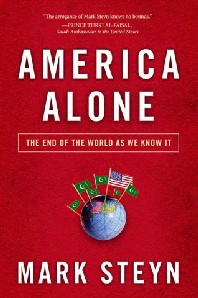… The country hungers for a black president. Not all of the country, but enough that, on balance, race would be an asset. It is no accident that when, a decade ago, another attractive, articulate African American with no experience in electoral office went on a book tour, he was met not just with rock star adulation but with a loud national chorus urging him to run for the presidency.The country is "hungering" to elect a man to the most powerful office in the world because he is black? No, Charles; if anyone is, it's the racial preferences industry. Most Americans would be happy to elect an African American provided he represented their views better than any other candidate and so long as he didn't use his race, even tacitly, to score points with various groups — probably impossible in this day and time.The object of affection then was Colin Powell. Today it is Obama. Race is only one element in their popularity, but an important one. A historic one. Like many Americans, I long to see an African American ascend to the presidency. It would be an event of profound significance, a great milestone in the unfolding story of African Americans achieving their rightful, long-delayed place in American life.
Of course there is racism in America. Call me naive, but I believe that just as Joe Lieberman was a net positive for the Democrats in 2000 -- more people were attracted to him as a man of faith than were turned away because of anti-Semitism -- there are more Americans who would take special pride in a black president than there are those who would reject one because of racism.
"A great milestone in the unfolding story of African Americans achieving their rightful, long-delayed place in American life"? I don't know much about Mr. Obama, and maybe he is a good man and would be a good president, but there is no way I am ever going to pull the lever for him because of racial symbolism. I am astounded that Krauthammer would suggest such a thing. Has he gone mad?
After 30 years of racial preferences, government contract set-asides, corporate shakedowns from the likes of Jesse Jackson, and racial/ethnic "targets" enforced by the Equal Opportunitities Employment Commission, we are now in Krauthammer's view morally obligated to hand over the presidency to a black man to show we are not racists.
Et tu, Charles?






